Colombia: health care in danger
… It is becoming increasingly dangerous to deliver health care in Colombia, especially in areas worst …
… It is becoming increasingly dangerous to deliver health care in Colombia, especially in areas worst …
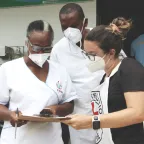
… the impact of the COVID-19 pandemic on public health, the economy, and society as a whole, … a regrettable record of attacks on health-care workers, facilities and vehicles, and … for different people. Health care in danger It is becoming increasingly dangerous …
… to prioritize in their political agendas the care and protection of victims and communities … and impede access to basic services, such as health care and education. Sexual violence is … that must not be forgotten. Health care in danger. Prisons, migration and use of force. …
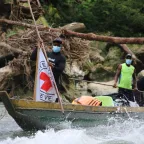
… of travel, food and accommodation for the 886 health-care workers who took part in this exercise, … that must not be forgotten. Health care in danger. Prisons, migration and use of force. …
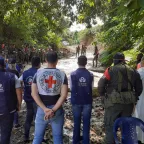
… basic services for detainees, such as food, health care and judicial guarantees. In the midst of … conflicts and violence, which exposes them to danger due to their unfamiliarity with the …

… and their families be given comprehensive care. The level of explosive-hazard … overshadow daily life, affecting the mental health and development of whole communities. … that must not be forgotten. Health care in danger. Prisons, migration and use of force. …
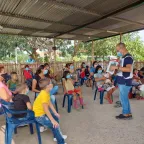
… pain and a deterioration in their mental health, also continue facing multiple obstacles to access care routes, such as legal barriers to access … in Colombia: a latent threat. Health care in danger. Prisons, migration and use of force. …

… is taking an immense toll on the mental health of affected communities and making it … a regrettable record of attacks on health-care workers, facilities and vehicles, and … that must not be forgotten. Health care in danger. Prisons, migration and use of force. …

… photojournalists to address the issue of health care in danger and respect for medical services during …
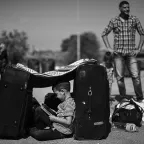
… who have to fetch the water, it can be a dangerous chore. "Some women who went to fetch … choice. "The water we use is not good for our health. It gives the children scabies," says … at Beni General Hospital or in other health-care centres funded by the ICRC. …

Try one of the following resources:
Created in 1863, the ICRC library, alongside the ICRC archives, provides an indispensable documentary reference on the organization itself and international humanitarian law.
International humanitarian law is based on a number of treaties, in particular the Geneva Conventions of 1949 and their Additional Protocols, and a series of other instruments.
Customary international humanitarian law consists of rules that come from "a general practice accepted as law" and that exist independent of treaty law.